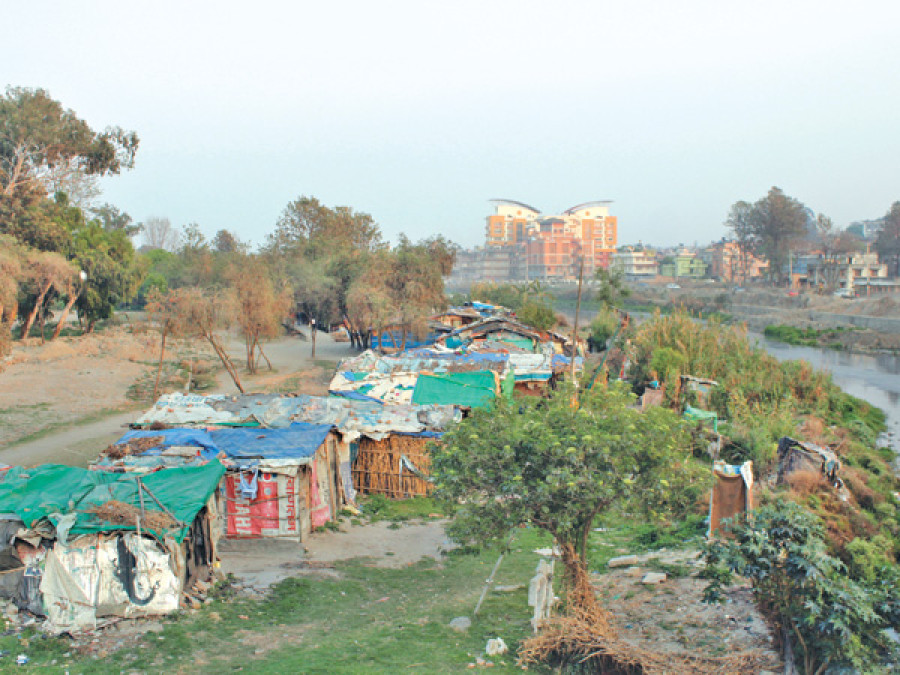National
Making and unmaking of land commissions continues
The newly revived commission, whose office bearers are yet to be appointed, is the 16th formed since the restoration of democracy in 1990 to distribute land to the landless.
Binod Ghimire
The government has revived the Land Related Problem Resolution Commission, which had been dissolved by the erstwhile Pushpa Kamal Dahal administration.
In addition to the office bearers, the government has also created 73 civil servant positions for the commission.
The government published the formation order in the National Gazette on Tuesday.
The Dahal administration dissolved a similar commission on March 22, which was named the National Land Commission (NLD). The Sher Bahadur Deuba government had constituted the NLD in September 2021, led by Keshab Niraula, former chairperson of the Nepali Congress-affiliated Nepal Teachers’ Union.
Over the years, there has been competition among successive governments to dissolve the commission constituted by the preceding government to form a new one. Prior to forming the Niraula-led commission, Deuba had dissolved the mechanism formed by his predecessor, KP Sharma Oli, which was led by Devi Prasad Gyawali, a CPN-UML leader who lost the mayoral race in Bharatpur Metropolitan City to Renu Dahal of the Maoist party in the 2017 elections.
Before its dissolution, the Niraula-led commission had received 1,077,446 applications and distributed land registration certificates to 4,586 families, according to the information published on the commission’s website.
The newly revived commission, whose office bearers are yet to be appointed, is the 16th such commission formed since the restoration of democracy in 1990 to distribute land to the landless.
Land rights activists say formation of a new commission is a welcome move as previous mechanisms were dissolved before they could accomplish their tasks.
"Untimely dissolution of the previous commissions was wrong," Jagat Deuja, a land rights activist, told the Post. "There is a constitutional mandate to provide land to the landless and the commission is the mechanism to do so."
As per the formation order, the present commission has broader authority than the previous ones. It also gives more roles to the local and provincial governments.
Among the 16, only seven actually distributed land plots to thousands of families in the past three decades.
The Krishna Prasad Bhattarai government in 1990 had first formed a mechanism to address the problems faced by the landless people in the country.
But even before the commission could start its work, a new government was formed. The Girija Prasad Koirala-led government dissolved the previous commission and formed a new one led by Shailaja Acharya, a Congress leader. The Acharya-led commission was the first to start the work of land distribution in earnest. Thereafter, Rishi Ram Lumsali, Buddhiman Tamang, Tarini Datta Chataut, Mohmmad Aftab Alam and Gopal Mani Gautam led various commissions and distributed land to the landless at different times.
The Lumsali Commission was formed during the nine-month government led by the UML in 1995. It gets the credit for distributing the largest chunk of land to the landless so far—21,900 bighas of land (14,673 hectares) among 58,340 families.
The Alam-led commission in 2001 distributed 9,500 bighas (6,365 hectares) to over 15,000 families, the second highest after the Lumsali Commission.
Records at the land management ministry show that around 46,000 bighas of land (30,820 hectares) have been distributed to some 150,000 families in the last three decades. However, tens of thousands of families are still landless.
In a year and a half of its formation, the Gyawali-led commission had received applications from 1,180,761 families, categorised as landless squatters and unplanned dwellers. Of the total, 247,940 were squatters and 932,801 were called “unplanned dwellers”.
The Gyawali-led commission was the first to be formed based on the Land Act of 1964. The Oli government in August 2019 reviewed the Act, and formed the commission in March 2020. The commission had the mandate to provide land to squatters. It also had the mandate to give land to the people who have resided at one place for decades, even if they own land in another part of the country, after charging a certain amount to them.
In order to address the issue of landlessness in big cities like Kathmandu, the commission had the mandate to construct multi-storied apartments for squatters instead of providing them land plots.
"The commissions have been victims of politicisation. There is uncertainty over the tenure of the present commission as well," said Deuja. "It can settle the long pending issue of land if it gets to work for three years and if local governments cooperate."




 21.12°C Kathmandu
21.12°C Kathmandu













